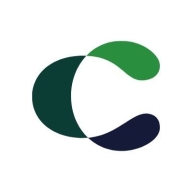

GitHub and Contrast Security Assess are competing in collaborative development and application security, respectively. GitHub has an advantage due to attractive pricing and reliable support, while Contrast excels with its strong security features, preferred by teams focusing on security despite higher costs.
Features: GitHub provides version control, code collaboration, and tool integration tailored for development efficiency. Contrast Security Assess includes vulnerability scanning, extensive security analysis, and continuous monitoring, making it ideal for enhancing application security.
Room for Improvement: GitHub could enhance its project management tools, improve visibility for its DevOps integration capabilities, and offer more robust native security features. Contrast Security Assess might improve user interface complexity, broaden integration capabilities with more development tools, and refine its deployment process for easier use by smaller teams.
Ease of Deployment and Customer Service: GitHub offers simple cloud and on-premise deployment models with excellent customer support, easily fitting into development workflows. Contrast Security Assess involves a more complex deployment due to its advanced security integrations, though backed by thorough customer assistance, facilitating its use despite initial complexity.
Pricing and ROI: GitHub is cost-effective for budget-aware teams, providing strong ROI in collaborative settings due to low setup costs. Contrast Security Assess requires higher investment attributed to its specialized security features but returns significant ROI by safeguarding against application vulnerabilities.
| Product | Mindshare (%) |
|---|---|
| GitHub | 1.5% |
| Contrast Security Assess | 1.3% |
| Other | 97.2% |

| Company Size | Count |
|---|---|
| Small Business | 2 |
| Midsize Enterprise | 3 |
| Large Enterprise | 6 |
| Company Size | Count |
|---|---|
| Small Business | 42 |
| Midsize Enterprise | 13 |
| Large Enterprise | 50 |
Contrast Security is the world’s leading provider of security technology that enables software applications to protect themselves against cyberattacks, heralding the new era of self-protecting software. Contrast's patented deep security instrumentation is the breakthrough technology that enables highly accurate assessment and always-on protection of an entire application portfolio, without disruptive scanning or expensive security experts. Only Contrast has sensors that work actively inside applications to uncover vulnerabilities, prevent data breaches, and secure the entire enterprise from development, to operations, to production.
GitHub is a web-based Git repository hosting service. It offers all of the distributed revision control and source code management (SCM) functionality of Git as well as adding its own features. Unlike Git, which is strictly a command-line tool, GitHub provides a Web-based graphical interface and desktop as well as mobile integration. It also provides access control and several collaboration features such as bug tracking, feature requests, task management, and wikis for every project.
We monitor all Application Security Tools reviews to prevent fraudulent reviews and keep review quality high. We do not post reviews by company employees or direct competitors. We validate each review for authenticity via cross-reference with LinkedIn, and personal follow-up with the reviewer when necessary.